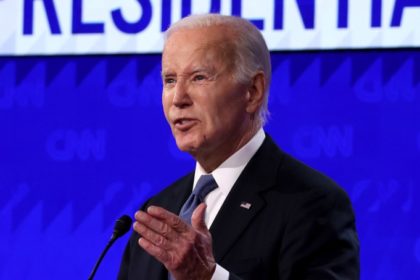
By Adeyemi Adekunle
In the twilight of his presidency, President Joe Biden has delivered an emotional lifeline to nearly 2,500 nonviolent drug offenders, commuting their sentences in what he called an effort to “right historic wrongs.
” The sweeping clemencies, announced on Friday, have not only cemented Biden’s record as the president with the most individual pardons and commutations but also ignited waves of hope and relief across the country.
For people like Angela Roberts, the news was life-changing. Angela’s brother, Marcus, has spent 12 years in federal prison for a nonviolent drug offense involving crack cocaine, a sentence that shattered their family.
On hearing the announcement, Angela fell to her knees, tears streaming as she clutched a photo of Marcus. “I prayed for this day for so long,” she said. “Marcus deserved better—a chance to prove he’s not defined by a mistake he made when he was just trying to survive.”
The clemencies come as Biden moves to confront sentencing disparities, particularly between offenses involving crack and powder cocaine, as well as outdated policies that disproportionately punished minor drug crimes.
“Today’s clemency action provides relief for individuals who received lengthy sentences based on discredited distinctions between crack and powder cocaine,” Biden said, adding, “This action is an important step toward righting historic wrongs.”
For families who have endured years of separation and stigma, Biden’s move is nothing short of transformative. In Kansas City, Maria Lopez, a mother of three, hugged her children tightly as she told them their father, David, would finally be coming home.
“We’ve been holding on for years, never letting go of hope,” she said, her voice breaking. “Now, my kids will have their dad back. They can grow up with him beside them, teaching and loving them.”
Advocates for criminal justice reform have hailed Biden’s decision as monumental. Many highlight that individuals currently serving long sentences for nonviolent drug offenses would face significantly lighter sentences—or even no prison time—under today’s laws.
While critics question the timing, suggesting it may be a last-minute attempt to define his legacy, others view it as the culmination of Biden’s long-standing commitment to addressing systemic inequalities in the justice system.
Still, for those directly affected, the political implications mean little compared to the personal impact. Robert Hughes, a 50-year-old man serving a 20-year sentence for a nonviolent drug offense, expressed his gratitude through his sister, Paula, who received the news on his behalf.
“He told me it feels like someone opened a window in a room he thought he’d never leave,” Paula shared. “All he wants is a chance to make amends and live out the rest of his life with dignity.”
Despite the joy radiating from families across the nation, some have voiced frustration over the lack of transparency surrounding the clemencies. The White House has yet to release the names of those receiving relief, leaving many in an agonizing limbo. For now, though, most are choosing hope over anxiety.
Biden’s decision comes amid broader discussions about criminal justice reform and the failings of punitive drug policies that have long devastated communities of color. Under laws that have since been revised, thousands of individuals were handed disproportionately severe sentences, tearing families apart and sowing distrust in the justice system. In neighborhoods still grappling with the ripple effects of these policies, Biden’s action feels like an overdue acknowledgment of past failures.
For Angela Roberts, it is also a chance to heal. “We can’t get those 12 years back, but we can start anew,” she said. “Marcus is more than his worst day. He’s someone who deserves a second chance, just like every one of those 2,500 people.”




